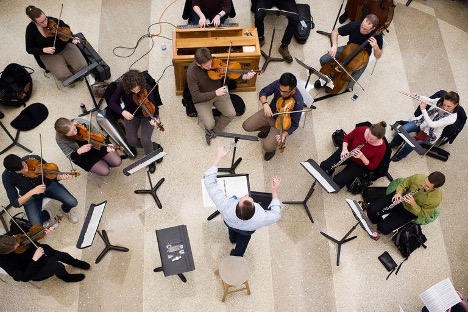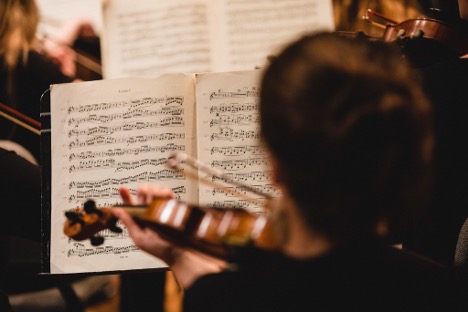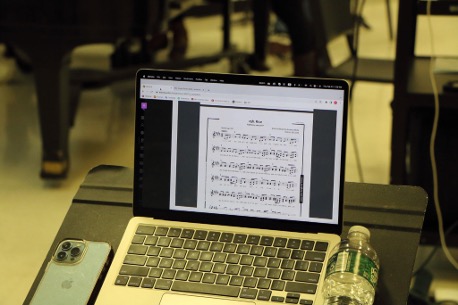Help Redefine Music Education in the 21st Century
Degree Requirements
This collaborative online doctorate program prepares music educators for advancement in their field by developing and honing research skills, sharpening proficiency in teaching techniques, and producing a dissertation of publishable quality that introduces new knowledge designed to push the field of music education forward.
Application Requirements
Boston University’s graduate programs in music education have been created for the continuing growth of forward-thinking leaders and educators who serve as advocates for the importance of music in our lives, communities, and schools.


Flexibility is Key
You’re eager to develop your scholarship, keep your musicianship sharp, and continue your teaching career. This is where online learning comes in. We’ve designed this program for you to be an important member of a small, academically rigorous online doctoral program without uprooting your family or leaving the work that fulfills you.
Applications for the Doctor of Musical Arts in Music Education online program are accepted once per year for a Fall term start. The application opens in September and has an early January submission deadline each year.

With a DMA in Music Education from BU you will:
- Learn new techniques and strategies that can be applied in your classrooms
- Collaborate with influential leaders in the music education profession
- Participate in a weeklong residency on campus with faculty and other students
- Pursue your scholarly interests and connect them to music education theories and your teaching practice
- Advance your career and discover new opportunities
- Complete your doctorate without uprooting your family or leaving the work that fulfills you
This was the most challenging, yet most fulfilling academic work that I have ever done. I have learned so much as a student, music educator, and researcher.
Jennifer Gebczyk (CFA’22)
The DMA program in music education has allowed me to finally combine everything I am passionate about: music, music education, culture, and history. My inquisitive nature was rewarded and my intellectual abilities both challenged and celebrated by the wonderful teachers in this program. I have a better sense of self and I grew as a musician, a teacher, and a citizen
Lily Grant (CFA’23)
The topics we covered in classes and the discussions I’ve had with fellow students and faculty have helped me to grow into a more empathetic and aware educator. I have shifted the way I approach topics in almost every class I teach. I hope I have become a better teacher that helps their own students approach any subject with a critical eye and ear and ask hard questions that lead to deeper understanding
Genevieve Karki (CFA’23)
Coming out of a postcolonial society where, in the early days, it was a privilege to even get an education—it just means a lot to me to see that students have access to music education within their schools
Read full article

Completed Dissertations
Below is a selection of completed dissertations from 2024 graduates of the online Doctor of Musical Arts in Music Education at Boston University that demonstrate the breadth and scope of topics and research methods used by our DMA candidates:
Dr. Esteban Adame – The Role of Self-Efficacy Beliefs in the Development of Jazz Improvisation Among Secondary Level Instrumental Music Students
Dr. Stephanie Cole – A Mixed Methods Investigation of Audiation-Based Teaching in Beginning Band
Dr. Rita Gentile – An Exploration of Wisconsin Choral Educator Preparation for Supporting Adolescent Singers
Dr. Josh Jordan – Exploring Middle School Band Directors’ Perceptions and Practices in Inclusive Music Education: A Case Study on Competencies, Resources, and Universal Design for Learning
Dr. Mary Ann Lanier – Synergies of Listening: Bakhtinian Dialogism in and Through Collective Free Improvisation
Dr. Alice Tsui – Our Voices Matter and We Are Golden 我们是金的: A Music Educator’s Reckoning with Homeplace in the Music Classroom




